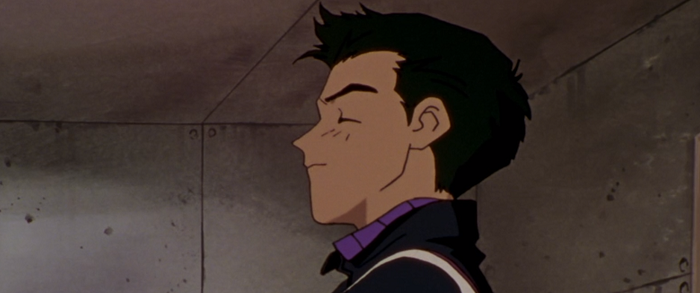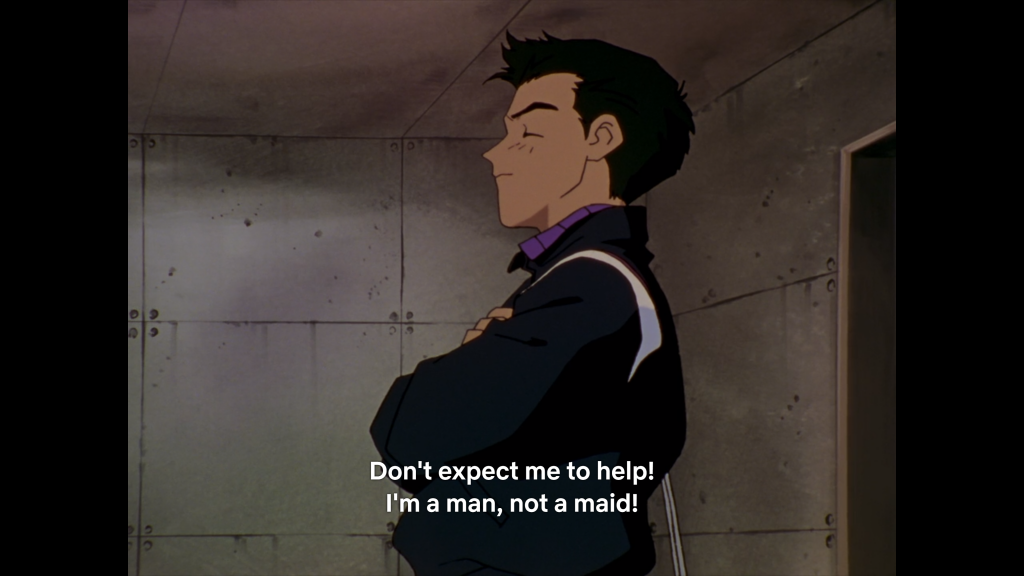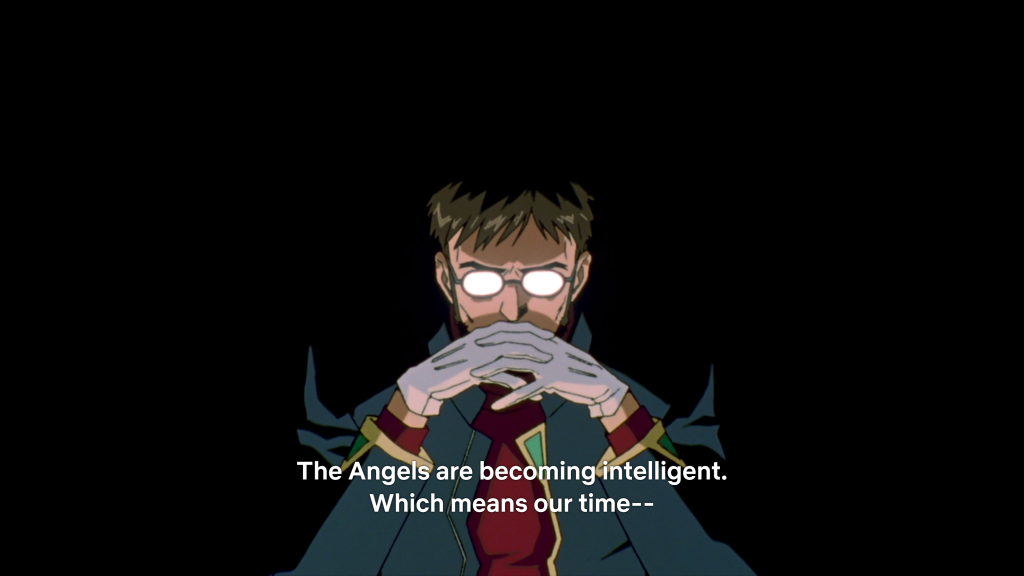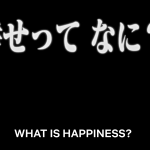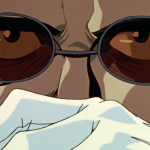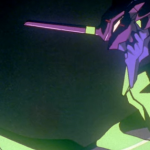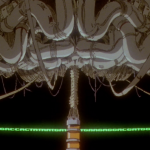Revangelion: Part 17 – The Cruel Fourth to be Qualified
Before we get started, a few words from Present-Adam on the times in which we find ourselves.
The six of you that read this series might be wondering why I took the last three weeks off updates to Revangelion. Perhaps I should start at the beginning.
Systemic racism is a thing in Canada. Our nation is the product of empire building, and with imperialism comes oppression and genocide. In the days following George Floyd’s murder, I saw some Canadians engaged in the same sort of smugness that always comes out of the digital woodwork whenever things like this happen in America.
“Thank goodness we live in Canada, a place where things like that don’t happen.” Except that they do. The debasement of human life by institutions that enshrine white supremacy and hegemony is as much a Canadian problem as it is an American one.
Hitting publish on anime piss takes while the world’s attention was on America, and while other Canadians were starting to have hard conversations about our role in white supremacy, seemed like the wrong thing to do. Instead, I focused on using what little digital platform I have to amplify the voices that needed to be heard, now more than ever. And even in writing these words, I’ve had to think really hard on some entry-level mistakes I’ve made that centered myself while trying to do the opposite.
With that said, and in consideration of some of the thoughts I’ve had over the last few days, I’m going to come right to the point. If you’ve been reading this essay series, then I would ask you to take some time to support (either through money or signal amplification) the work that is being done to protect and support Black and Indigenous people in Canada. Here are some links to get you started. There are many more lists and links that a cursory google search could help you find – many of them prepared by Black and Indigenous people so you don’t have to wonder where to start.
Ontario Federation of Indigenous Friendship Centres
To borrow a phrase from a show that is much better than Evangelion, you don’t have to save the world. You just have to make a difference where you can, with the opportunities you are given. That’s all I’m asking.
And now, on with my stupid writing…
Revangelion: Part 17 – The Cruel Fourth to be Qualified
The title joke (i.e. The Cruel + actual episode name), which is almost certainly is as fresh today as it was back when I dropped the very first Revangelion essay, is somewhat apt for this episode. The entirety of this episode orbits around rehabilitating Toji Suzuhara, Tokyo-3’s resident dumbass jock and borderline sex pest, and, in turn, showing how the series’ supporting characters, that is to say nobody who works at NERV, are actually kind of decent to each other.
At the same time, I think it is yet another example of how this show can be both brilliant while having its head shoved directly up its own ass.
After turning the essay on episode 16 into a massive wall of text, I’ll try to be brief in noting the essential story elements for episode 17.
- Shinji has hung his entire sense of self-worth on being an Eva pilot
- Gendo’s belief that humanity is beyond redemption is reinforced through a speech about humanity being expelled from the Garden of Eden and how Tokyo-3/cities/civilization are for cowards
- Shinji’s persecution complex is going to lead him to fall all the way down the well of his own psyche when Instrumentality starts
Much of the episode’s evident story orbits seemingly disposable moments that undermine Gendo’s entire argument in point #2. Naturally, they will never amount to anything essential to the broader arc because this isn’t a show about saving humanity.
We start with Suzuhara going to visit his sister, still in the hospital due to complications from the injuries she sustained during Shinji’s first battle. Later, Shinji and Suzuhara go drop off Rei’s homework – she missed school due to having her brain scanned in that tank thing, so that her neural patterns could be imprinted on the “dummy plug” as a means of activating an Eva without a human pilot. And if you think my explaining that was jarring, you should watch the episode sneak it in with all the nuance of a brick to the chops.
On a positive note, the lingering foulness of Shinji’s last home invasion is replaced with him cleaning up the garbage in Rei’s apartment. When Rei walks in on Suzuhara and Shinji scrubbing the apartment to within an inch of its studs, the act of kindness prompts her to reflect on how she had never said thank you in her life.
[RN: This could be a reflection on how Rei’s life has served no purpose other than being a component in Gendo’s great machine. Alternatively, it could be an attempt on Hideki Anno’s part at cleverly showing us this a fresh Rei clone. It’s hard to tell at this point, particularly when there’s no way someone in the audience could get to that second idea without finishing the whole series. Call me a praise miser if you will, but I think something that is effectively layered rewards its audience during the story, not after it is over. Effective examples of this include The Good Place and Mr. Robot.]
Toward the end of the episode, we see Suzuhara alone in the school, apparently skiving off cleaning the classroom and other such “duty officer” responsibilities. The arrival of the class rep, who heretofore has been absolutely insufferable, should instigate another wave of teen drama. Instead, the rep observes that Suzuhara always eats vending machine food for lunch, and in turn offers to cook something for him.
These vignettes get lost amid Gendo and the council talking about angels trying to communicate with Shinji in the last episode, and Shinji’s declining synchronization test scores. Yet it is these lost moments of humanity that offer vital contrast to Shinji Gendo inevitably destroying the world. They show that there is something worth saving in humanity. In the context of Gendo banging on that Tokyo-3 is a city of cowards, a few people finding time to tend to each other potentially derails the need for Instrumentality.
[retrospective note: first, remember that past-Adam got it in his head that Shinji’s choice in the land of beat poetry c. ep 25 and 26 was triggering Instrumentality, and not deciding his role within it. Second, my word choice is intentional: kindness derails the arc of a series where everyone travels on a train, and speeches are delivered on trains. It is as if Hideki Anno were trying to say something about people being stuck on fixed paths. The metaphor would have impressed me at one point in my life.]
Suzuhara, who has been emotionally stunted at times, observes that he never saw Shinji as the type of person to care about other people. There’s no glory to be gained in cleaning up a filthy apartment. Nobody will praise him. Shinji wanted to do something nice for a friend/crush because he knew she would never do that for herself. If only Shinji had been written to lock on to that as an emotional cornerstone, he might not come off as so singularly annoying.
Even Kaji, NERV’s resident lothario, telegraphs that humanity isn’t as bad as Gendo imagines. This is seen when Kaji takes Shinji out for a cup of tea and a trip to his watermelon patch. While watering his plants, Kaji comments on the quiet satisfaction that comes with creating something from nothing. It’s an unexpected turn from someone whose primary interests in life seem to be drinking, fucking, and spying. What really clinches the scene is Kaji telling Shinji that people who experience pain – i.e. SHINJI MOTHER FUCKING IKARI – are kinder to others because of it. Kaji even takes it a step further to say that kindness is not something that should be confused for weakness.
[RN: Where is this coming from and why is it only showing up two thirds of the way through the series? Why will it never come back again, save for as symptoms of Shinji’s fraying mental stability? This show might come off as a little more accessible if it focused on such universal ideas rather than getting lost in a sea of its own mythology like Frank Herbert on a bad acid trip.”]
This episode is a fireworks display of evidence that Human Instrumentality isn’t necessary. People are neither monsters or cowards. People make lunches for their crushes when they see that there’s literally nobody else to do something nice for them. People walk into the bad part of town to drop off their co-worker’s homework before helping to clean up their apartment. Shinji might be a little intropunitive, as Asuka suggests, but when he doesn’t have the weight of the world on his shoulders, he can be an okay kid.
Mind you, that doesn’t let him or Hideki Anno off the hook for taking Shinji to creepy places back in episode five, or anywhere else in the series. It should make us question why Anno, who was writing a show about alienation, never did anything more to explore this duality of human nature? Why revel in the misery so much that the audience will become numb to it?
It’s also fair to ask if the first time Evangelion watcher has stuck around long enough to take anything from these sequence? This middle section of the story only makes sense with knowledge of the end. If the viewer doesn’t know that Shinji is going to turn into a self-loathing, public-masturbating monster, is there any poignancy to his capacity for compassion in this episode? Similarly, is Ritskuo stating that the Eva pilots are necessary for our “collective survival” a statement of fact, or a wink toward the audience who can’t possibly know that Gendo’s plan involves building a human collective? This is where things get sticky. I suspect many people are going to see tonally jarring filler that ends on yet another visual reference to Christianity as a helicopter carries a somewhat crucified looking Eva-04 into Tokyo-3. This is the endless quantum super position of this series. It is both clever while having its head up its own ass.
At least now the audience can see what the faint light of hope amid the darkness looks like in Evangelion. Both Shinji and Suzuhara show how people can change and care about other people. Seeing this contrast against Gendo’s rant gives us another clear plank in the platform of Gendo being a super-villain. Also, I recall that the next episode is going to have Eva-04 going berserk and turning into an angel with Toji inside of it. If I’m right, that means the everything here might just be a send-up for extra-special misery in the following chapter. So that’s…something.
[A note from a version of me who has finished watching the entirety of the series, for a third and final time, and is now free to connect the dots that past-Adam could not quite see:
Even though Past-Adam is not quite right in how he connected the dots in this essay, his approach is correct enough to make for some interesting reflections.
Shinji’s various breakdowns over the following episodes aren’t engineered to get him to push the proverbial button on destroying humanity. Rather they drive him into isolation and create a resonance between the elder and younger Ikaris. Gendo wants to end pain through union with everyone – particularly his dead wife. Shinji wants to end pain through isolating himself from the world. The kindness on display here shows that bad luck, at least from Shinji’s perspective, more than ill intent, is what keeps Shinji feeling he only has value as a pilot and not a person.
However, from the art critic’s perspective, this is a hell of a contrivance to work around. Such miserly application of human kindness to a character is evidence of intent – at least from where I sit. Since I have long since settled on Evangelion being part dogma and part group therapy session (if therapy were where one yells their problems to an audience) the subtext I pick up on from Anno, writing Shinji as his avatar, is that of a man shouting at his audience because he can see people being nice to other people, so why aren’t they nice to him?]

